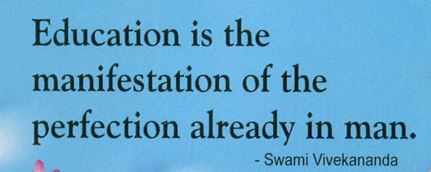The concept of management may be the product of industrial era. But I am confident to state that management as a concept is as old as the development of societies. It is since then, man has learnt to manage men in tactful ways be it business affairs or domestic issues. Management is all about getting things done efficiently and effectively with and though other people. There are enough evidences that early societies have learned the art of team management for activities like hunting, agriculture or cultural events. Management has evolved since then, even though the basic tenet of the theory is same but there is always a shade/color of the society and its relevant customs. Bringing back to management today and how businesses models have shifted in the past few decades, it would not be ambitious to state that management style of a company will no more be its proprietary. Several reasons to support my statements include global nature of business, increased movements of employees to other companies, and similar fibre of the issues experienced by the companies.
Question is when the issues of the businesses are same then why do we have to think of different solutions? Can we have a solution that will benefit both side of the business? To answer such question there was a better need of open source. Open source is a collaborative style of business which is a winner for all. Open Source is a relatively new concept with the development of software as an industry in early 1960. One of the best charms of open source is that once the blue print is created, it is distributed among the end users and the users could modify and source code as per their need to make it bigger and better. This collaboration begets a better product for the community of users and the stakes were shared too. This model has been extremely popular and successful in the last two decades.
As we have experienced that Open Source is applied basically for programming in IT world. However, I am convinced that there is much more to gain from this business concept. One of the ideas is to design Open Source codes for management style. As we all know that there are a lot of common grounds in regards to how businesses are done in an industry or a geographical region. Designing business management protocols and semantic to share and collaborate will help all businesses in the community and industry to gain from this collaboration.
For example, if a firm designs a prototype of hiring and if we consider it as a basic source code which and is shared with others with an intension to modify the sources to a bigger and better version. I am convinced that there is much more to gain than to hold back and have monopoly. As we know that even major business rivals like IBM, Oracle and Sun collaborate and modify codes so there is a bigger and better market for all.
To reiterate the point again that once we are able to prototype business models, processes and systems, it will not only make the business systems more efficient but also expand the market for all.
There is a radical shift in the ways how business was done in the past and there is a higher need for collaboration for any business to succeed.
“I’m thinking of changing the world with open source. I know that’s kind of communist.” Michael Hand






 m sure many of you draft goals every year. Most of them are repeated year after year. Most of them die untimely death usually in the first quarter….I too plead guilty.
m sure many of you draft goals every year. Most of them are repeated year after year. Most of them die untimely death usually in the first quarter….I too plead guilty.